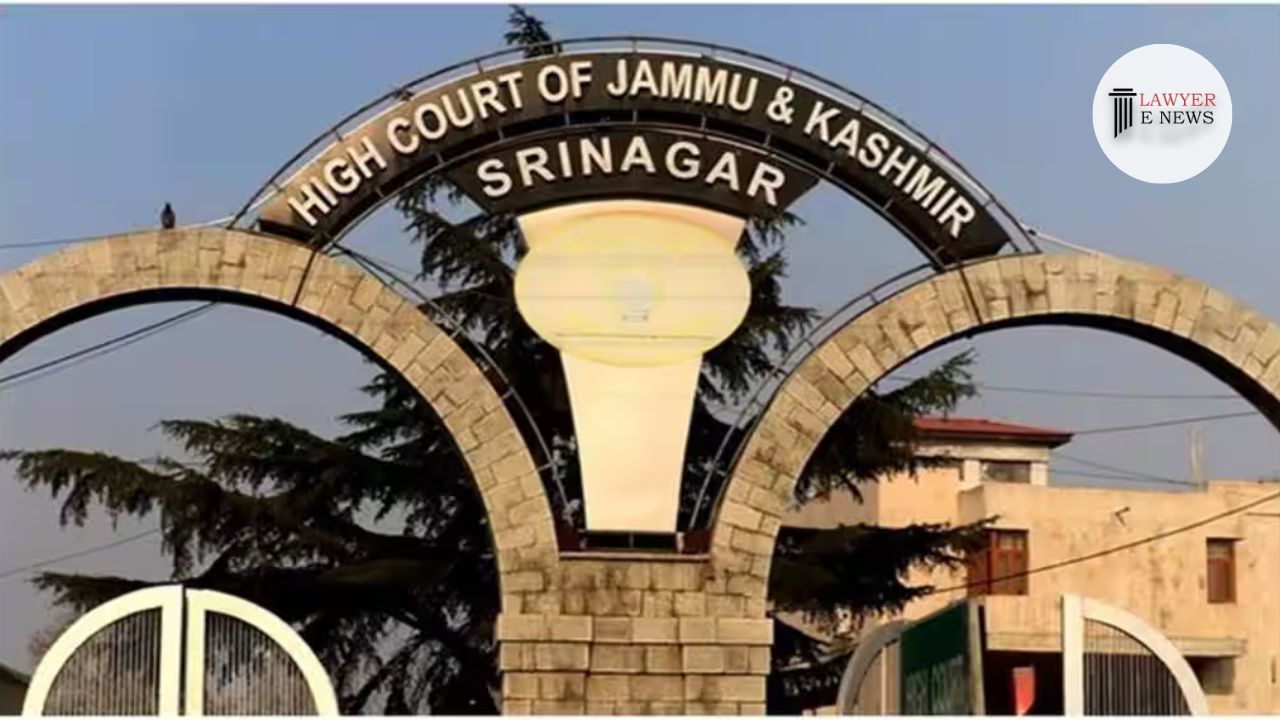-
by Admin
15 February 2026 5:35 AM



High Court clarifies that notice under Section 12 of the D.V. Act is procedural and not an interim order for monetary compensation.
The High Court of Jammu & Kashmir and Ladakh at Srinagar dismissed a petition challenging the proceedings under Section 12 of the Protection of Women from Domestic Violence Act, 2005. The petitioner argued that the respondent, already receiving maintenance under Section 125 Cr.P.C. and from his salary, should not receive further monetary compensation. Justice Sanjay Dhar ruled that the petition was premature and lacked merit, allowing the petitioner to address his concerns before the trial Magistrate.
The petitioner, Mudasir Ahmad Dar, had challenged the proceedings initiated by the respondents, Mst. Mashooka and another, under Section 12 of the D.V. Act. After their marriage ended in divorce on April 8, 2023, the respondent managed to secure Rs. 5000 per month from the petitioner’s salary as maintenance. Additionally, interim maintenance of Rs. 10,000 and Rs. 7,000 per month was awarded to the respondent and their child, respectively, under Section 125 Cr.P.C. Despite this, the respondent filed a petition under Section 12 of the D.V. Act seeking further interim monetary compensation.
Procedural Nature of Notice: Justice Dhar emphasized that the notice issued by the trial Magistrate under Section 12 of the D.V. Act was procedural, meant to call for a response from the petitioner, and not an order for interim monetary compensation. “No interim order for monetary compensation has been passed in favour of respondent No.1 against the petitioner in these proceedings,” Justice Dhar clarified.
Premature Nature of the Petition: The court noted that the petitioner had already filed a reply to the notice but had prematurely approached the High Court instead of waiting for the trial Magistrate’s decision. “The petitioner should have waited for the order of the learned Magistrate after filing of objections under section 12 of the D.V. Act, but instead of doing so, he has prematurely filed the instant petition,” the judgment stated.
Limitation Argument Rejected: Addressing the petitioner’s argument regarding the limitation period, the court referred to the Supreme Court’s decision in Kamatchi v. Lakshmi Narayanan. The Supreme Court held that an application under Section 12 of the D.V. Act need not be filed within one year of the alleged acts of domestic violence. The court thus found the petitioner’s contention “without any substance.”
Justice Dhar cited the Supreme Court’s clarification that the notice under Section 12 of the D.V. Act is to ensure a procedural response, facilitating an appropriate order post consideration of rival submissions. “The legal position, that a criminal court cannot review its own order, would not get attracted at a stage when the notice is issued under Section 12 of the Act,” the judgment reiterated.
“The petitioner should have waited for the order of the learned Magistrate after filing of objections under section 12 of the D.V. Act,” Justice Dhar noted, highlighting the premature nature of the petition.
The dismissal of Mudasir Ahmad Dar’s petition underscores the procedural nature of notices under the D.V. Act and reinforces the necessity of awaiting trial court decisions before escalating matters prematurely. The ruling aligns with Supreme Court precedents, ensuring that applications under the D.V. Act are not constrained by a rigid limitation period. This judgment clarifies the procedural steps in domestic violence cases, potentially influencing future cases with similar procedural challenges.
Date of Decision: 20th May 2024
Mudasir Ahmad Dar v. Mst. Mashooka and Another
